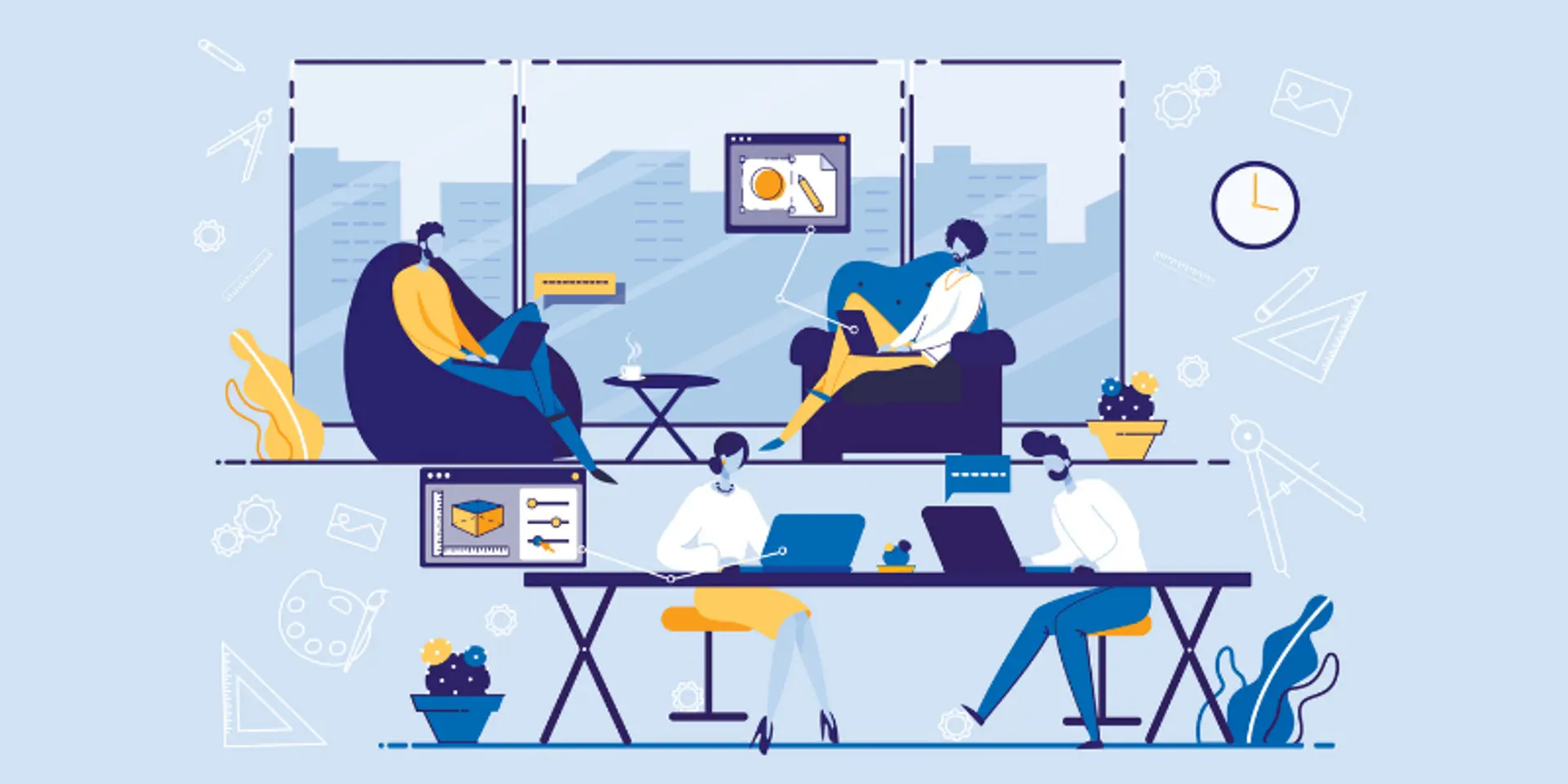How co-working spaces can maintain community spirit in the new normal
Here are some strategies that can assist in ensuring that you retain an engaged community despite the odds.
The pandemic has challenged our society and fundamentally upended its social construct. While its impact may last long with social distancing, lockdowns, and resulting economic fallout becoming the new norms, we do have the resilience to pull through these tough times.
Since the ease of lockdown restrictions last year, a lot of efforts have been made to ensure re-entry, return to work, and reopening of businesses and institutions. But now with the second wave of the pandemic hitting us hard, it looks all the more difficult.
While several industries are trying to adapt and thrive in this economic downturn there is a need for innovation, flexibility and agility in the way we operate. This has become a reality for the co-working industry in particular, as they are forced to reassess their operations, offer flexible membership plans, and introduce new business models. While adapting to accommodate the hybrid model of working and de-densifying demands of the businesses would benefit the sector in the long run, how does one ensure retention?
Community engagement has always been a strategy that has led to retention but it is a challenge when spaces are not allowed to bring a sizable number of people together. Here are some strategies that can assist in ensuring that you retain an engaged community despite the odds:
Communicate with your community
The most important thing to do is keep a consistent and open line of communication with your community at all times. Address their safety concerns by communicating the precautionary measures incorporated by your workspace. Instil a sense of confidence amongst your members by providing safety protocols like regular temperature checks, sanitisers, along with socially distant workstations and signages that guide their movement within the space.
For example, setting up a task force that is accessible 24x7, is updated with government protocols and has access to medical assistance in times of emergencies, shows that you are there to support them no matter what.
Designing more spacious workspaces, including more natural light, plants and open-air spaces can make the work environment more comfortable as well as an attractive place to work out of. Creating service offerings that benefit your members and offer flexibility along with easy access to the workspace and its amenities allows them to design their work strategies effectively.
Be clear, vocal and repetitive in reinstating the offered flexibility, structural changes in layout as well as in operations via newsletters, social media and through one on one communication. In doing so you demonstrate the value that you add as well as the support you offer.
Tailor-made solutions
As a co-working space, you have the skill as well as access to resources that can prove extremely beneficial and crucial in times when the members themselves need to focus on business continuity.
1. Providing a platform for collaboration
Knowing that you are not alone in these difficult times and have a community that is dealing with similar challenges can help reduce stress and loneliness.
You can create a virtual platform using the available online software and tools to allow members to post their questions and concerns. The key here is to keep it active and consistent. You can start by initiating certain conversations that can help build momentum.
2. Virtual marketplace for their services
In a period of business uncertainty, you can encourage your member community to talk about their services and exchange skill sets to tap into an existing business network that your co-working space hosts.
Organising skill exchange webinars or a product showcase lunch are some interesting ways to help create more business avenues for your member community.
3. Partnerships to access services
Designing partnerships that are attuned to the business needs of your members will help them access resources and build their business with much more ease.
For example, a packaged solution to launch an ecommerce platform to take your business online or affordable digital marketing solutions is something that will help take off the load.
4. Curating member experiences virtually
When a business chooses to work out of a coworking space, it is also looking for something more than an office space as well. It’s imperative for the team to ensure that it’s not just a desk but a team of highly-skilled professionals who are at work to ensure the community thrives and flourishes.
a. Offer subscriptions to online productivity-based or earning and development apps.
b. When working from home or having to manage a team remotely, discounts and offers for various video conferencing tools, home office products etc can prove beneficial.
c. Curating webinars, workshops, fun entertaining virtual workout sessions, games or potlucks can bring the community together. At the same time, curating talks by industry experts, discussions on topics that matter like sustainability or industry trends help add value to the member community.
Involve and be present
Beyond brands, members are also tangible and more localised evidence of the way the industries are adapting and sustaining in the new reality.
It's important to include them in your planning, talk to them about strategies and offerings that will benefit and help them get through these uncertain times.
For example, reach out to the HR heads of each company and understand the business and employee status and see what gaps can be filled by you, understand what lateral support can be provided not just to the business but also to individual employees, you never know how one man's need becomes a potential value add for the entire community.
After a harrowing year, employees want to be a part of something where they belong. Check their well being, remember important days, and be proactive in celebrating them with them, always be prompt in responding to their queries and requests. As a way of subtle conversation or via structured methods, always seek feedback as it will help you design better experiences that align with their needs.
Edited by Kanishk Singh
(Disclaimer: The views and opinions expressed in this article are those of the author and do not necessarily reflect the views of YourStory.)








